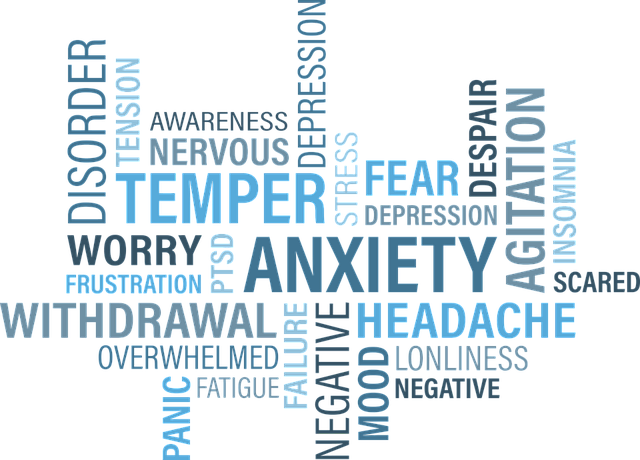The first response in a tense, challenging, or perceived threatening situation is “fight or flight.” Some moment in everyone’s life triggers this anxious reaction.
In some cases, when anxiety is at a median level, it can motivate you to try much harder to achieve the objective you’re striving for. Still, in other situations, it can prevent the effort. When allowing fears and worries to intercede in your decision-making, it’s possible that the anxiety may have become a disorder.
Anxiety is among the most common mental wellness disorders in the US, affecting adults with symptoms varying from one person to the next. Some struggle with ruminating thoughts developing into obsession, while others experience sudden and extreme panic attacks.
When experiencing an overwhelming disorder, it’s difficult to add life decisions to what is already a heavy load. That makes seeking help a challenge. An integral component for treating the symptoms is recognizing that you could be suffering from a condition or mental wellness disorder with the potential for management.
While you might not understand the full scope of what it is, a professional can guide you through the uncertainty to gain insight into the anxiety and its root causes.
When Is It Time To See A Therapist
Often people try to hold off in reaching out for help believing they’re strong enough to withstand more than they need to. No one needs to suffer through mounds of stress, fears, and worries to the point these become detrimental to their life.
When contacting a private therapy clinic to help you manage these anxieties is challenging for you, perhaps it’s intimidating; talk to a close friend or someone you trust to help you reach out to the appropriate expert.
It’s always easier when there’s someone to lean on when facing the unknown. There’s no weakness in asking for help; it takes strength to do so. How do you know when it’s time to see a therapist for your anxiety? Consider these signs.
-
Overwhelm is part of your daily life
When an unexpected situation arises, a first instinct is to anticipate the worst possible outcome. This intense anxiety form is referred to as “catastrophizing.” It debilitates those suffering from the disorder, making their worries disproportionate.
Over time, the paranoia can culminate into panic attacks, and the individual ultimately chooses to avoid it. A therapist will work through this thought process and behavioural patterns to help you establish insight into your mental wellness.
Find out when is the time to seek therapy for anxiety at https://adaa.org/learn-from-us/from-the-experts/blog-posts/consumer/how-know-when-seek-therapy.
-
Your physical wellness is detriment
Often when suffering from mental unwellness, there are physical repercussions as well. Many research studies correlate stress and anxiety with a vast array of physical ailments.
These can range from headaches to upset stomachs and common colds that occur regularly. Another anxiety symptom is muscle pain, particularly in the neck, with no explanation.
Before reaching out to the mental wellness therapist, a preliminary step would be to see a primary care physician to rule out an underlying general health condition.
-
Establishing and retaining relationships is a challenge
In its most debilitating forms, anxiety can make it challenging to maintain relationships. Instead of growing closer, the disorder can cause some to pull away from those closest in their life or become exceptionally dependent on those relying on them for emotional support.
If communication is becoming difficult or you find yourself in constant conflict, a therapist can work to find the root of the issue. A professional therapist can guide you toward self-respect, asserting yourself in a way that’s not aggressive in the sense of using “you” but rather “I” to avoid unnecessary conflicts.
When interaction with those close to you leave you irritated or feeling low, a therapist can work to find the underlying reason and help develop social skills to navigate a better interaction. It could require a group session with the people creating these reactions.

-
Controlling your emotions is becoming more difficult
While it’s normal to experience a range of emotions, whether angry, sad, anxious, or happy, paying attention to when you have which emotions and the intensity level when having them is essential.
Anxiety creates a fight-or-flight response within the body. If you remain in the mode for an extended time, it can create overwhelm, making controlling the negative emotions more challenging.
A therapist will help you recognize and learn to manage emotions in a safe space where there’s no judgment, only a place where you feel trust and have complete confidentiality.
After time you’ll feel capable of being vulnerable, allowing the therapist to dive deeper into issues you might not have been willing to delve into previously.
Final Thought
When you’re in the throes of an anxiety disorder, finding the situation overwhelming, and having difficulty reaching out for help, you might look for unhealthy means of coping with the circumstances.
Some people turn to substance abuse as an immediate distraction from the problem, relieving the problem thoughts and emotions, including irritation and helplessness.
The issue with these sorts of coping techniques is the results wear off, and then you need more. . . and more, until you establish a habit, a bad habit, perhaps a dependence. Go here to learn why you should seek help with a therapist instead of suffering alone.
If you haven’t reached out for help to this point and are now struggling with addiction, it’s crucial to find a professional therapist immediately. Close friends and family can offer emotional support, but they’re not a substitution for expert therapy. Private therapy is a necessity to gain control over the disorder plaguing you.






